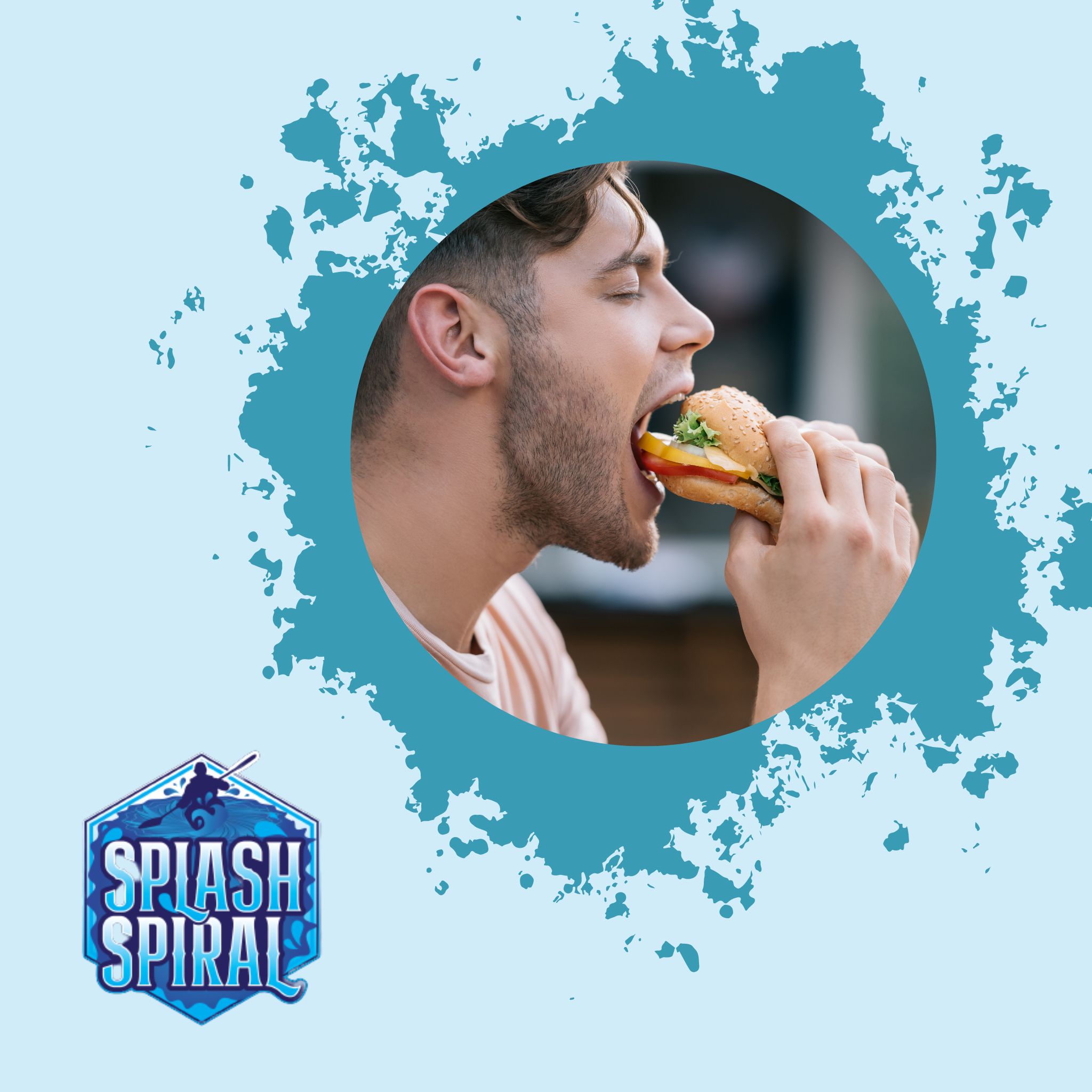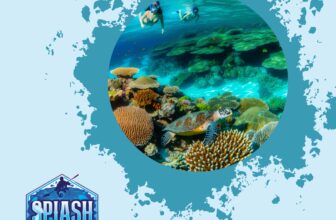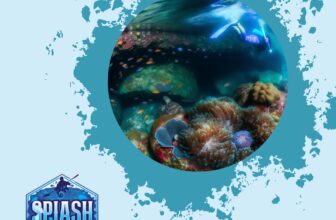
Scuba diving is an exciting and adventurous activity that allows you to explore the underwater world and witness the beauty of marine life up close. Whether you’re a seasoned diver or a beginner, it’s important to take your safety seriously when diving. One of the key factors that can affect your safety is what you eat before diving.
Eating a balanced meal before scuba diving is crucial because it provides your body with the necessary fuel and nutrients to perform at its best during the dive. Diving requires physical exertion and energy, so it’s important to ensure that your body has enough fuel to sustain itself throughout the experience.
Furthermore, eating before diving can help prevent fatigue, dizziness, and other symptoms that can negatively impact your dive experience. In this article, we’ll discuss some tips on what to eat before scuba diving so that you can have a safe, enjoyable dive.
General Guidelines for Pre-Dive Meals
Going scuba diving is not just about putting on your gear and jumping into the water. To ensure that you have a safe and enjoyable experience, it’s essential to eat the right foods at the right time before diving.
Here are some general guidelines to help you plan your pre-dive meals. First, it’s important to eat a light meal 1-2 hours before diving.
This will give your body enough time to digest the food and provide you with enough energy during your dive. Eating too much or too close to the start of your dive can cause discomfort, nausea, or cramps underwater.
Secondly, avoid fatty, greasy or spicy foods as they can upset your stomach and affect your buoyancy control underwater. Instead, opt for nutritious foods that are easy to digest such as carbohydrates, lean protein, fruits and vegetables.
Staying hydrated is crucial before any strenuous activity like scuba diving. Drink plenty of water or juice before diving so that you are well-hydrated throughout your dive.
Dehydration can lead to headaches and dizziness underwater which can be dangerous. By following these general guidelines for pre-dive meals, you will be able to enjoy a safer and more comfortable experience while exploring the beauty of the underwater world!
Specific foods to eat before scuba diving
Carbohydrates: Fueling your Dive
When it comes to finding the right meal before your dive, carbohydrates are key. They provide the necessary fuel for your body during the dive and help keep you energized throughout.
Some great options include pasta, rice, bread, and fruit. Not only are these foods easy to digest, but they’re also packed with complex carbs that will keep you feeling full and satisfied.
If you’re looking for a quick and easy pre-dive meal, try making a sandwich with whole-grain bread and lean protein like turkey or chicken. Add in some greens like spinach or lettuce for added nutrition and top it off with sliced avocado for a boost of healthy fats.
Or if you have more time before your dive, whip up a bowl of brown rice with roasted veggies like sweet potato or zucchini. You’ll have plenty of energy to explore the underwater world!
Lean Protein: Building Strength
In addition to carbs, lean protein is another important component of any pre-dive meal plan. Proteins help build and repair muscles which can be especially important after taking on the physical challenges of scuba diving! Some great protein-packed foods include grilled chicken, fish (such as salmon), tofu or tempeh (if you’re plant-based), eggs, greek yogurt or cottage cheese.
Pairing lean protein with complex carbohydrates will allow for slow digestion which keeps blood sugar levels consistent throughout the dive. As always be sure to make sure that any animal based proteins are cooked thoroughly while preparing meals.
Vegetables & Fruits: Essential Nutrients
When it comes to staying healthy both in and out of water there’s no substitute for fresh produce! Vegetables like leafy greens provide essential vitamins such as Vitamin C which helps support immunity and Vitamin K that aids in preventing blood clots.
Carrots are excellent for vision health with Beta-carotene that converts to Vitamin A and helps with night vision. Fruits such as berries are packed with antioxidants, which help reduce inflammation.
Apples provide soluble fiber that aids in reducing cholesterol levels. Remember it’s important to rinse fresh produce well before consuming, this will help avoid any unforseen digestive issues during the dive.
Nuts & Seeds: Healthy Fats
Nuts and seeds can provide a healthy source of fat that the body uses for sustained energy throughout your dive. Almonds have been found to lower risk of heart disease and maintain blood sugar levels as well as being a great source of protein.
Sunflower seeds contain a high amount of vitamin E which is essential for healthy skin while also providing an excellent source of magnesium. Adding mixed nuts or seeds into a snack baggie or tupperware container along with some dried fruit like cranberries makes for an easy-to-pack snack for your next diving adventure!
Foods to Avoid Before Scuba Diving
While it is important to know what foods are beneficial for scuba diving, it is equally important to know which foods to avoid. Eating the wrong type of food before a dive can cause discomfort, indigestion, or worse, negatively affecting the dive experience. Here are some foods to avoid before scuba diving:
Heavy Meals
Avoid consuming large quantities of food before a scuba dive. Heavy meals can make you feel lethargic and bloated, leaving you with less energy and endurance when you need it most during the dive. Additionally, overeating increases the risk of experiencing cramps or gastrointestinal distress during the dive.
If you must eat a full meal before diving, do so at least three hours beforehand to allow for proper digestion. Stick with lighter fare that won’t leave you feeling weighed down – think grilled chicken with vegetables or a sandwich on whole-grain bread.
Fatty or Greasy Foods (e.g., Fast Food)
Fast food might seem like an easy option when pressed for time before a scuba dive; however, consuming greasy burgers and fries will do more harm than good. Fatty meals take longer to digest and can cause stomach discomfort – not ideal when underwater!
Instead of fast food, opt for lean meats and fish that are easier on your stomach. If you’re in a rush and crave something quick, try grabbing some nuts or fruit instead.
Spicy Foods That Can Cause Heartburn or Indigestion
If spicy foods like chili peppers and hot sauce are regulars in your diet, consider avoiding them before going on a scuba diving trip. Eating spicy foods can result in heartburn or indigestion.
While these symptoms may not seem like a big deal on land, they can be very uncomfortable when diving. Furthermore, spicy foods increase your body temperature and make you sweat, leading to dehydration.
Caffeine or Alcohol Which Can Dehydrate the Body
While caffeine and alcohol might be staples in many people’s diets, it is best to avoid them before going scuba diving. Both caffeine and alcohol are diuretics which can cause dehydration.
Dehydration causes dizziness, fatigue, headaches and can lead to decompression sickness (DCS) during a dive. It’s important for divers to stay hydrated before, during and after diving.
So instead of reaching for that coffee or beer before a dive, opt for water to keep your body well hydrated. By avoiding heavy meals, fatty or greasy foods like fast food, spicy meals that cause indigestion or heartburn and diuretics like caffeine or alcohol before scuba diving will help ensure you have an enjoyable and safe experience during your underwater adventure.
Conclusion: Fueling Your Scuba Diving Adventure
Scuba diving is an incredible experience, and to make the most of it, you need to fuel your body properly before heading underwater. Eating a balanced meal before diving can help you avoid fatigue, cramps, and other unpleasant effects of low energy levels.
By following the guidelines above, you can prepare yourself for a safe and enjoyable dive. Remember that it’s crucial to eat a light meal that consists of carbohydrates, lean protein, fruits and vegetables, and nuts or seeds.
Avoid heavy or greasy meals that may cause indigestion or nausea during the dive. Also, stay hydrated by drinking plenty of water throughout the day leading up to the dive.
By taking these steps to prepare your body for scuba diving adventure ahead of time, you will be able to focus on enjoying the beauty of the underwater world without worrying about feeling tired or hungry halfway through your dive. So pack a healthy meal with plenty of energy-boosting nutrients and get ready for an unforgettable scuba diving adventure!
The Magic of Balanced Nutrition
Eating well is essential not only for scuba diving but also for living a healthy life in general. By maintaining a balanced diet rich in fruits and vegetables, lean proteins, whole grains, and healthy fats like nuts or seeds , we can provide our bodies with all the essential nutrients it needs.
A good diet doesn’t have to be boring or restrictive; there are many delicious recipes out there that are both tasty and nutritious! So why not start experimenting in your kitchen today?
You never know what amazing flavors await you! Remember: when we take care of our bodies properly by eating well before scuba diving (or any other activity), we set ourselves up for success so we can fully enjoy all life has to offer!







